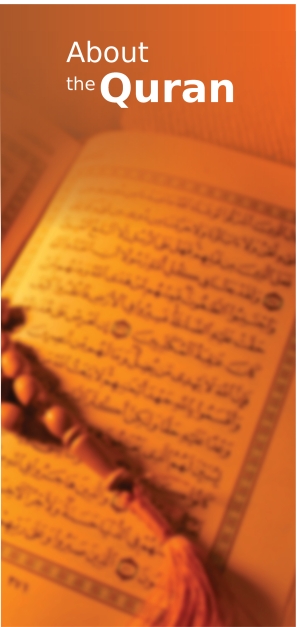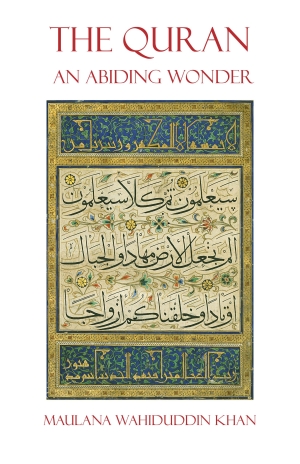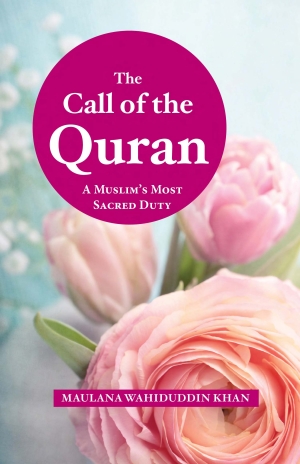A tradition of the Prophet of Islam predicted: "Islam began as a stranger. And, finally, it will again become a stranger. Let, then, the strangers be blessed" (Muslim). It would be no exaggeration to say that the original version of Islam has become unfamiliar to both Muslims and non-Muslims alike. As a result, many misconceptions about the Quran and Islam have emerged.
The Islamic perspective of any issue can be found enshrined in its original scriptures. The authentic source of information about Islam is the Quran. God revealed the Quran to the Arabian Prophet Muhammad. The second source of knowledge about Islam is the Sunnah, i.e., the life, words, deeds and sanctions of the prophet Muhammad. The lives of the companions of the prophet provide another later source. Then, there is a full stop to this matter. No other person or historical record enjoys the status of the source of Islam.
The Quran (and Islam) must be rediscovered to find the true interpretation of Islam by differentiating between Islam and Muslims. Islam is a religious ideology, whereas the position of Muslims is determined by the sentiments and conduct of a community. Therefore, if one wants to have a true picture of Islam, one must differentiate between Islam and Muslims and judge Muslims in the light of Islamic Scriptures—Quran and Sunnah—and not vice versa.
Featured Articles
Featured Videos
FAQs
No, Islam does not curb religious freedom. The Quran went further and stated for the first time in human history:
“There shall be no coercion in matters of religion.” (The Quran, 2:256)
According to God’s creation plan, man has been granted total freedom. Freedom means that, from the moral standpoint, he can take either the right path or the wrong path as he chooses.
This fact has been expressed in the Quran in these words: “This is the truth from your Lord. Let him who will, believe in it, and him who will deny it.” (The Quran, 18:29)
That is to say, let one who wants to accept the truth, accept it. And let one who wants to reject the truth, reject it.
In such a situation it is quite natural that there should be total freedom of speech in Islam. Placing any curb on freedom of speech will go against the creation plan of the Creator Himself. Anyone who misuses his freedom should be countered with logic and argument, not with violence. In other words, the pen will be countered with the pen and not with the sword.
Source: The True Face of Islam
The principle of secular democracy is exactly in accordance with the teachings of Islam. There is a verse in the Quran describing those who know this principle as those “who conduct their affairs by mutual consultation.” (42:38)
A tradition of the Prophet explains it further: “As you will be, so will be your rulers.” (Sunan Al Baihaqi Vol. 6, p. 22, Mishkat Al Masabih, No. 3717) This verse and this tradition tells us that the principle of Islam is to accept the opinion of the majority in worldly matters common to all. This principle can be called practical settlement. This practical settlement can be arrived at with declaration or without declaration.
The Prophet of Islam started his mission in Makkah without interfering with the tribal Parliament known as Dar-an-Nadwa’. Neither did he challenge the presence of the 360 idols placed in the Kabah, etc. It was in the nature of an undeclared settlement. After the migration, he entered into a proper written agreement with the Quraysh on the occasion of Hudaybiyyah.
In this agreement, it was mentioned in writing that neither party would commit any aggression, directly or indirectly, against the other. It was, in effect a declared settlement.
Secular democracy is neither an absolute theory nor an eternal system. It is only a practical settlement that is made according to the situation. Its basic purpose is to provide opportunities by maintaining peace in social life.
By avoiding confrontation, such a process should be set in as may facilitate the journey to the desired goal. Holding secular democracy against Islam is extremism, and there is no place for extremism in Islam.
Source: The True Face of Islam
There is a common belief that Islam gives a higher status to men in comparison to women. This is a misconception in the truest sense of the word.
Contrary to the common misconception that Islam holds men superior to women, Islam actually gives equal status to women as that of men. The Quran says: “You are members, one of another.” (3:195)
This means that there is no difference between the two as regards status, rights, and blessings both in this world and in the Hereafter.
The following Hadith gives an apt description of the role of women: “Men and women are two equal halves of a single unit.” (Al Tirmizi)
We see that both the sacred scriptures of Islam make it clear that neither sex is inferior or superior to the other. However, studies in biology and psychology show that the sexes are different in nature, each being designed for a different purpose. So, the Islamic maxim runs: “Equal in respect, but different in role.”
Each being equal has a different sphere of action. That is, in making their contribution to social activity, the men undertake whatever is harder, while the women deal with whatever is lighter.
Source: The True Face of Islam










